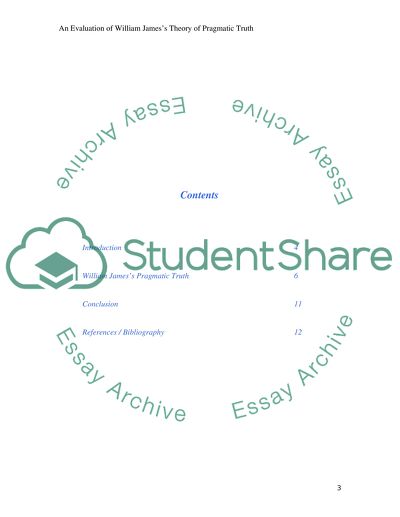Cite this document
(An Evaluation of William Jamess Theory of Pragmatic Truth Report Example | Topics and Well Written Essays - 3250 words, n.d.)
An Evaluation of William Jamess Theory of Pragmatic Truth Report Example | Topics and Well Written Essays - 3250 words. https://studentshare.org/philosophy/1535061-philosophy-william-james-pragmatic-truth
An Evaluation of William Jamess Theory of Pragmatic Truth Report Example | Topics and Well Written Essays - 3250 words. https://studentshare.org/philosophy/1535061-philosophy-william-james-pragmatic-truth
(An Evaluation of William Jamess Theory of Pragmatic Truth Report Example | Topics and Well Written Essays - 3250 Words)
An Evaluation of William Jamess Theory of Pragmatic Truth Report Example | Topics and Well Written Essays - 3250 Words. https://studentshare.org/philosophy/1535061-philosophy-william-james-pragmatic-truth.
An Evaluation of William Jamess Theory of Pragmatic Truth Report Example | Topics and Well Written Essays - 3250 Words. https://studentshare.org/philosophy/1535061-philosophy-william-james-pragmatic-truth.
“An Evaluation of William Jamess Theory of Pragmatic Truth Report Example | Topics and Well Written Essays - 3250 Words”. https://studentshare.org/philosophy/1535061-philosophy-william-james-pragmatic-truth.


